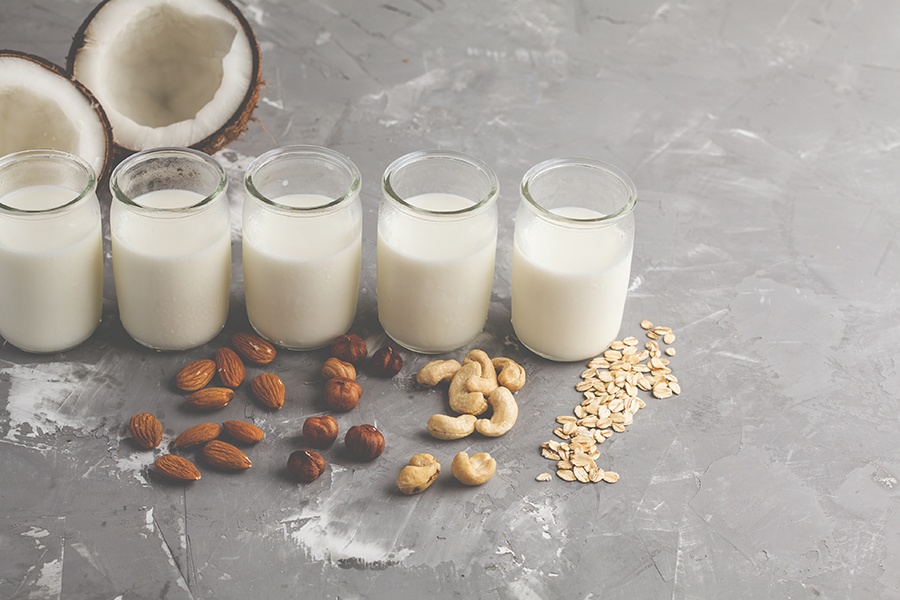In the dairy aisle, the array of milk choices can be overwhelming. From traditional cow's milk to an ever-expanding selection of plant-based alternatives, each option brings its unique set of benefits and considerations. In this comprehensive guide, we'll embark on a journey through the diverse world of fresh milk, exploring the nutritional content, environmental impact, and taste profiles of various types. Whether you're a dairy enthusiast or exploring plant-based options, this guide will help you make informed choices that align with your preferences and values.
Whole Cow's Milk: Creamy and Nourishing
Whole cow's milk, often recognized for its creamy taste, contains around 3.5% milk fat. Rich in essential nutrients like calcium, vitamin D, and protein, it provides a wholesome option for those seeking a well-rounded dairy experience. The full-fat content makes it an excellent choice for growing children and individuals looking to maintain a healthy weight.
Skimmed Milk: Low in Fat, High in Nutrients
Skimmed milk undergoes a fat-removal process, leaving it with less than 0.5% fat content. While it lacks the creamy richness of whole milk, it remains an excellent source of protein, calcium, and vitamins without the added calories. Skimmed milk is a popular choice for those aiming to reduce dietary fat intake while still benefiting from essential nutrients.
2% (Reduced-Fat) Milk: Balancing Creaminess and Moderation
With approximately 2% fat content, reduced-fat milk strikes a balance between the richness of whole milk and the leanness of skimmed milk. It offers a compromise for individuals seeking a creamier taste while keeping an eye on their fat consumption. It remains a good source of nutrients without the higher fat content associated with whole milk.
Lactose-Free Milk: A Solution for Dairy Sensitivities
Lactose-free milk is treated to break down lactose, making it a suitable option for individuals with lactose intolerance. It retains the nutritional benefits of regular milk, providing an alternative for those who experience digestive discomfort after consuming lactose-containing products.
Organic Milk: Sustainable and Free of Synthetic Additives
Organic milk comes from cows raised without the use of synthetic hormones, pesticides, or genetically modified organisms (GMOs). This option is chosen by those seeking milk with minimal environmental impact and fewer chemical additives. While the taste is comparable to conventional milk, the choice is often rooted in environmental and ethical considerations.
Goat's Milk: A Nutrient-Rich Alternative
Goat's milk offers a nutrient-rich alternative to cow's milk, containing similar levels of protein and calcium. Some individuals find goat's milk easier to digest due to differences in protein structure. Its distinct taste adds a touch of uniqueness, making it a favorite among those seeking variety in their dairy choices.
Almond Milk: Nutty and Low in Calories
Almond milk, a popular plant-based alternative, is known for its nutty flavor and low-calorie profile. It is naturally lactose-free, making it suitable for individuals with dairy allergies or those following a vegan diet. While lower in protein compared to dairy milk, many almond milk varieties are fortified with vitamins and minerals.
Soy Milk: A Protein-Packed Plant-Based Option
Soy milk is a versatile plant-based milk with a protein content comparable to cow's milk. It is often fortified with calcium and vitamin D, making it a nutrient-rich option for those seeking an alternative to dairy. Soy milk's neutral taste allows for easy incorporation into various recipes.
Oat Milk: Creamy and Heart-Healthy
Oat milk has gained popularity for its creamy texture and heart-healthy benefits. Rich in beta-glucans, oats are associated with lower cholesterol levels. Oat milk is often chosen for its sustainability, as oats require less water and land compared to some other crops.
Coconut Milk: Tropical and Rich in Flavor
Coconut milk, extracted from the flesh of coconuts, provides a tropical twist to milk alternatives. While higher in saturated fat, coconut milk can be enjoyed in moderation as part of a varied diet.
In the diverse landscape of milk options, the choice ultimately boils down to personal preferences, nutritional goals, and ethical considerations. Whether you opt for the creamy richness of whole cow's milk, the nutty undertones of almond milk, or the heart-healthy attributes of oat milk, each type brings its unique characteristics to the table. By understanding the diverse offerings in the dairy aisle, you empower yourself to make informed choices that align with your taste buds, dietary needs, and values. So, the next time you navigate the dairy aisle, consider this guide your compass, guiding you through the multitude of milk options with confidence and clarity.


No comments yet